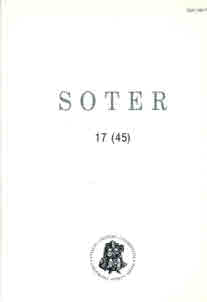Antropologizacija ir sakramentiškumas naujosiose tikybos programose*
Anthropologization and sacramentality in the new religious education syllabus
Author(s): Stasė Alma StasiulevičiūtėSubject(s): Christian Theology and Religion
Published by: Vytauto Didžiojo Universitetas
Summary/Abstract: Religious Education department of Vilnius Pedagogical University and Vilnius Cathecetical Centre has initiated a new project of Catholic Religious Education syllabus for Lithuanian secondary schools. The project has been worked out in collaboration with teachers of Religion and tested at several schools in each of the seven dioceses of this country. This article analyses the aims and objectives presented in the new syllabus, as well as the contents of teaching and the methods the syllabus suggests. Our analysis reflects on the new syllabus in the light of both the Church documents and the investigations into the latest tendencies of educational reforms. The new syllabus is making a radical move towards a more anthropological approach: the faith issues are being presented in a less direct way than it used to be traditionally done in the previous syllabus (1998). Most of the topics in the new syllabus have very down-to-earth titles, such as “Seeking happiness”, “Our need for love”, “Does anyone deserve death?” etc. The syllabus demands, however, that for each of these topics, a theological dimension is absolutely obligatory. The anthropological approach to the faith seems very appropriate in the light of the Church recommendations about inculturating the Christian message and about adapting it to the needs of the non-believers and the doubting seekers. Besides, anthropologization is helpful for integrating Religious education with the other subjects, so as to touch the whole context of school education with the light of the Gospel. The syllabus also aims at reforming the traditional reproductive teaching methodology towards a newer interpretational methodology, so as to lead the learner and the teacher from monologue to dialogue, from formation to self-education, from moralizing to cooperation, from memorization to discovery. An essential objective of the new syllabus is helping a person to develop proper relationships with self as God’s creation in His own image and likeness, with God Himself as the true initiator of every relationship, with one’s neighbour, with the Church and other communities or groups, with the natural, physical and cultural environment. The syllabus has received a positive evaluation from the teachers who tested it, but it nevertheless keeps causing some misunderstanding and apprehension among the traditionally-minded. To show that the new syllabus does not lead away from Catholicism, the article supports the anthropological approach with the illustrations of the Emaus pedagogy applied by Jesus Himself, as well as with quotations from Church documents and the resolutions of Vatican II. We are also employing the principle of Sacramentality as formulated by Thomas Groome, a famous cathecetical author in the USA. According to this principle, faith can be best proclaimed by presenting everyday reality as graced and sacramental, e. i. permeated by God’s plan and His presence, and therefore able to signify and to disclose Him.
Journal: SOTER: religijos mokslo žurnalas
- Issue Year: 45/2006
- Issue No: 17
- Page Range: 59-67
- Page Count: 9
- Language: Lithuanian

